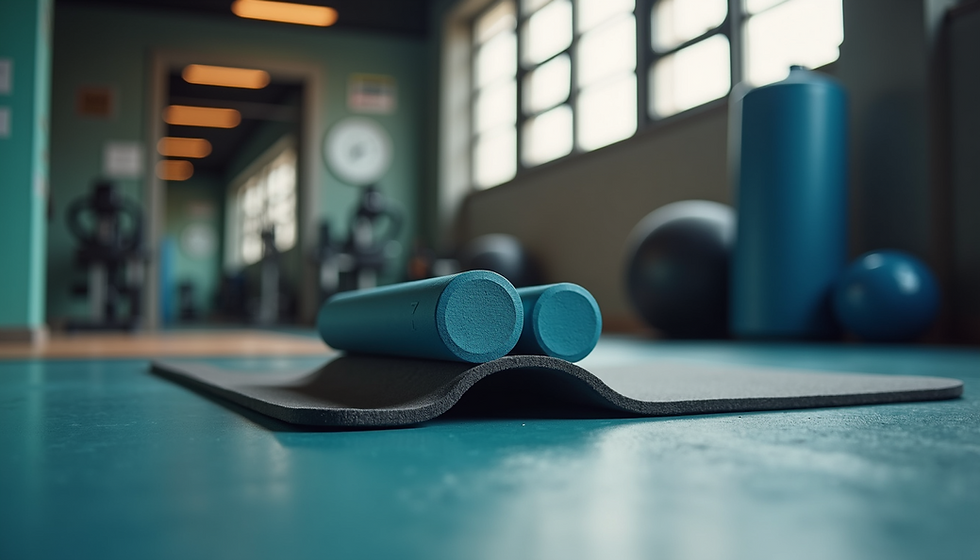Breaking Free from Fitness Fads: Sustainable Habits for Real Results
- Sturdy Fitness

- Apr 29, 2025
- 3 min read
It seems like every day there’s a new fitness trend for women promising quick results, a perfect body, or the ultimate transformation. From juice cleanses to 30-day shred programs, these fads often leave you feeling frustrated, burned out, and right back where you started. At Sturdy, we believe in a different approach: embracing sustainable fitness habits that support real, lasting results—not just for your body, but for your mind and spirit, too.
The Problem with Fitness Fads
Fitness fads tend to:
• Focus on Short-Term Results: They promise quick fixes but don’t provide long-term solutions.
• Encourage Extremes: Over-restriction or intense programs can lead to burnout and injury.
• Ignore Individual Needs: Most fads follow a one-size-fits-all approach, ignoring your unique body, goals, and lifestyle.
These trends often leave you feeling like you’re not enough, which is the exact opposite of what fitness should do.
The Sturdy Philosophy: Fitness That Fits Your Life
At Sturdy, we focus on fitness as part of a holistic, balanced lifestyle. Here’s how to move away from fads and toward sustainable habits:
1. Set Realistic Goals
Fads often overpromise and underdeliver. Instead, focus on setting achievable, meaningful goals.
• Example: Instead of aiming to “lose 10 pounds in two weeks,” shift to goals like “build a consistent workout routine” or “feel stronger and more energized.”
• Pro Tip: Track progress in ways that matter to you, such as how you feel or how your daily energy improves.
2. Build Consistency Over Perfection
Quick fixes rely on rigid plans, but sustainable results come from consistent, flexible habits.
• Start small: Commit to 20 minutes of movement a day, whether it’s a walk, a workout, or stretching.
• Stay adaptable: Life happens—missing one day isn’t a failure. Simply get back on track when you can.
3. Focus on Functional Fitness
Instead of chasing aesthetics, prioritize fitness that supports your life.
• Functional fitness emphasizes strength, mobility, and balance, which are essential for everyday activities.
• Example: Practicing squats improves your ability to lift groceries or play with your kids.
4. Listen to Your Body
Your body knows best, and fitness should never feel punishing.
• Pay attention to what feels good versus what drains you.
• Adjust workouts based on your energy levels, menstrual cycle, or stress levels.
5. Prioritize Recovery
Rest is as important as the workout itself. Overtraining leads to burnout, while proper recovery helps your body rebuild and grow stronger.
• Incorporate rest days: Use these days for stretching, yoga, or light movement.
• Sleep well: Prioritize quality sleep to support recovery and overall well-being.
6. Make It Enjoyable
Fitness shouldn’t feel like a chore—it should feel empowering.
• Find workouts you love, whether it’s dancing, swimming, strength training, or hiking.
• Mix it up to keep things fresh and exciting.
Why Sustainable Fitness Works
Building healthy habits over time leads to:
• Improved physical health: Stronger muscles, better mobility, and greater endurance.
• Better mental health: Reduced stress and improved confidence.
• Long-term success: Sustainable habits last, while quick fixes fade away.
Your Next Steps
• Start simple: Pick one habit to focus on this week, like taking a daily walk or drinking more water.
• Be patient: Real results take time, but they’re worth it.
• Celebrate small wins: Progress is progress, no matter how small.
Fitness is not about punishing your body into submission. It’s about building strength, confidence, and resilience in a way that fits your life. At Sturdy, we believe in a balanced approach that prioritizes wellness over trends. Because at the end of the day, “Slow and Sturdy wins the race.”
Disclaimer:
The information provided in this blog is for educational and informational purposes only and is not intended as a substitute for medical advice, diagnosis, or treatment. Always consult your doctor or a qualified healthcare professional before starting any fitness program, making changes to your health or nutrition routine, or addressing specific health concerns. Your individual needs, conditions, and goals should be considered when making decisions about your health and wellness.









Comments